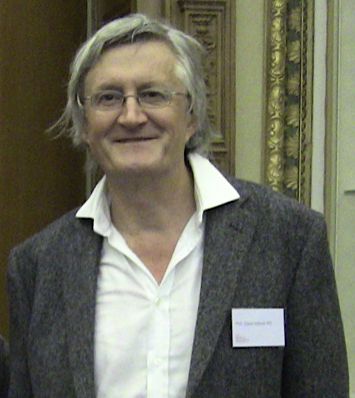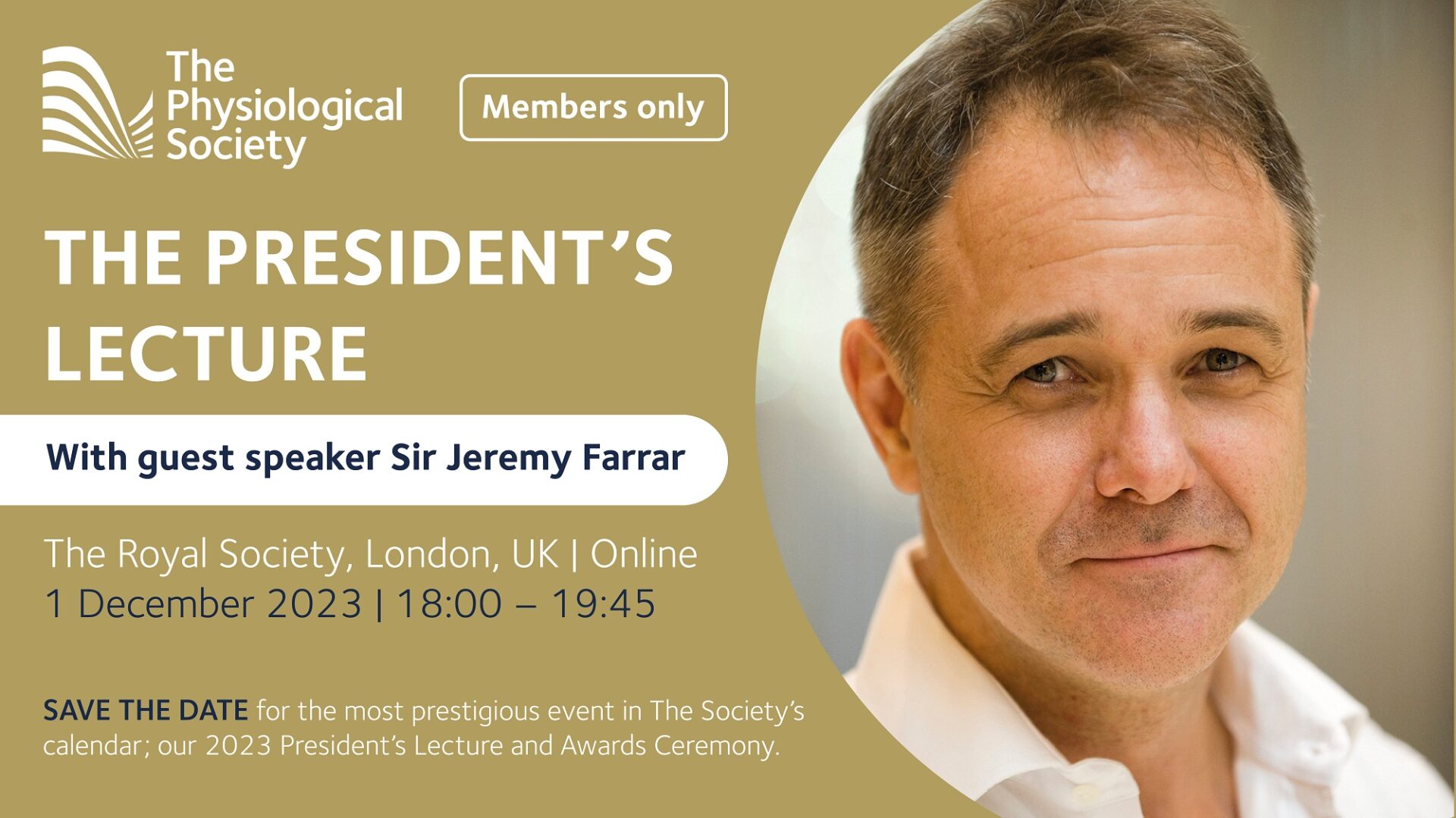
Physiology News Magazine
The dawn of a new academic year: Continuing to raise the status of physiology
President’s View
Introduction
The dawn of a new academic year: Continuing to raise the status of physiology
President’s View
Introduction

Professor David Attwell
President, The Physiological Society
Meetings and online events
Three days of exciting physiology with nearly 500 registered attendees from 190 universities, in a beautiful spa town, with great restaurants in which to eat and discuss science: Physiology 2023 hit all the right notes as the first major conference of my period as President. I thoroughly enjoyed it, including presenting my own abstract (on increasing cerebral blood flow in Alzheimer’s disease) with mercifully fewer savage comments from the audience than when I gave similar presentations as a PhD student!
The format of the meetings we put on has been much debated by the Conferences Committee and Council in the last year, with an increasing number of attendees now being attracted to briefer (two days), more specialised meetings. I attended one of these recently, the Vascular Sandpit meeting, which had the unusual format of trying to bring researchers together to write more competitive grant applications – and (more ambitiously!) bridging the basic research/clinical research divide. Despite cultural differences on that last point being much in attendance, it was impressive that a large number of potential grant consortia were formed at the meeting. Other two-day meetings coming up include: Cross-Talk of Cells in the Heart: Novel Mechanisms of Disease and Arrhythmias in Liverpool in September; Regenerating the Cardiovascular System: Mending Broken Hearts and Beyond in Oxford in September; an online meeting on Drowning Prevention and Treatment in October; and The Neurophysiological Basis of Human Movement at King’s College London in December.
While the format of these specialised two-day meetings seems to be a winner with attendees, the question of how to organise our main meeting of the year, covering all of physiology, has been dominated by the realisation that most conference centres are now too expensive for us to hire and they also do not attract as many participants as they used to do. Accordingly, decisions have been taken to make most of our future main meetings jointly organised with other societies, and also to try to make them cost neutral. The first such meeting will be Physiology in Focus 2024 in July next year, with the Scandinavian Physiological Society in Newcastle, and this will be followed by a joint meeting (IUPS 2025) with IUPS and Europhysiology to be held in Frankfurt.
Add to all these meetings a host of online lectures, and the President’s Lecture and Awards Ceremony at the Royal Society on 1 December, and it is clear that our members have a large number of exciting opportunities to engage with and to meet each other at. The President’s Lecture this year is being given by Sir Jeremy Farrar, formerly head of the Wellcome Trust and now Chief Scientist at the World Health Organization*. Jeremy has been awarded the Order of Ho Chi Minh (for services to tropical disease research in Vietnam), and I look forward to hearing how his work in that environment led to him becoming the head of one of the wealthiest and most influential science-supporting agencies in the world.
Journal news
Two aspects of journal funding play a role in determining the health of our finances: the income from the journals, and the cost of running them. Historically, income from The Journal of Physiology has kept the Society’s finances strong, but the move towards Open Access publishing will reduce the income we receive per published article. This will almost certainly mean that we will need to publish more papers (ideally without sacrificing quality) and perhaps start a new journal to provide an extra revenue stream. For money-saving reasons, but also to reduce travel in order to produce less of the global heating we have seen in so many catastrophic fires this year, we will also need to make more Editorial Board (and other Committee) meetings online rather than in person. On the topic of the Editorial Board of The Journal of Physiology, I’m delighted to welcome back Kim Barrett as Editor-in-Chief, after a productive period with Peter Kohl at the helm.
Policy
We continue to try to raise the status of physiology, by fixing blue plaques on university buildings to celebrate pioneering physiologists. The last six months have seen a plaque erected in Glasgow to commemorate Sir John Boyd Orr – a nutritionist and Nobel Peace Prize winner (the man who gave us free school milk until Mrs Thatcher took it away again), and in King’s College London to commemorate Ernest Starling – discoverer of the first hormone (secretin), as well of how fluids move across capillary walls and how the force of contraction of the heart is regulated by its filling. On the more political front, the Policy Team presented reports to the Oireachtas on Future funding for basic research in Ireland, and to the UK Parliament on the conditions needed for Artificial Intelligence to meaningfully and safely contribute to healthcare (in brief, it is important to understand how the data processing leads to the conclusions used to infer information about patients’ conditions). As physiology grows in less well-developed countries, it is also important that we lend a hand to help the scientists there set up their own meetings. In this context we have awarded a small amount of money to help support the first meeting of the East African Society of Physiological Sciences, and I (together with several IUPS scientists) am serving on the organising committee, to try to ensure that the conference proceeds smoothly.
As the new academic year approaches, I hope you will come back to physiology feeling refreshed, and willing to try out some of the large range of activities that we have organised for you.
*Institutional affiliation is provided for identification purpose only and does not constitute institutional endorsement. Any views and opinions expressed are personal and belong solely to the individual and do not represent any people, institutions or organisations that the individual may be associated with in a personal or professional capacity unless explicitly stated.

